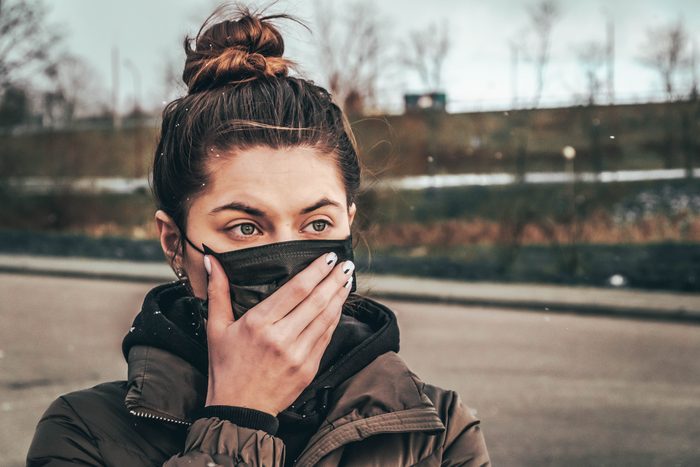If Omicron Is Rampant and Less Severe, Why Bother With Prevention at All?

Dr. Kieran Quinn explains the fundamental problem with this attitude towards COVID-19 infections.
There is a new and different attitude to this COVID-19 wave–resignation toward COVID-19 infection altogether.
People argue that since Omicron is relatively less severe than prior variants and that all Canadians are likely to become infected at some point, why bother with prevention at all? Why not “let it rip” and be done with it? There are three fundamental problems with this approach, which lie in an understanding of the difference between relative and absolute numbers.
First, recent studies suggest that Omicron may be 50 percent relatively less severe than Delta, meaning fewer people will require hospitalization. The absolute numbers tell a different story. If one million people were infected with Delta with a one percent risk of hospitalization, there would be 10,000 hospital admissions. However, Omicron infects approximately six times more people than Delta. We would therefore expect six million infections with Omicron with a 0.50 percent risk of hospitalization, resulting in 30,000 hospital admissions. Although it may be relatively milder in severity, the sheer volume of infections would quickly overwhelm the capacity of our health-care system. An overwhelmed health-care system must cancel elective surgeries like hip and knee replacements and delay diagnosis and treatment for important diseases like cancer.
Second, approximately 10 percent of adults who develop COVID-19, regardless of its severity, will have lingering symptoms that negatively affect their quality of life and ability to work and function. This important group of “Long Haulers” may seem small in comparison to the overall number of people with COVID-19 infection. Yet, many who survive acute infection are likely to have considerable symptom burden, high health needs, reduced economic productivity and possibly a shortened life expectancy.
The total number of Canadians infected with COVID-19 could exceed five million with the more transmissible Omicron. On an absolute scale, that means that approximately 500,000 Canadians may suffer the effects of Long COVID—10 percent of a large number is still a lot.
Third, there are comparatively small groups of people whose absolute risk of developing severe COVID-19 and dying from it is high. These include the frail elderly, those in long-term care, people taking immune suppressing medications and those with primary immunodeficiency. As a society, we must take a broader view beyond our individual selves and continue to protect those who are most at risk.
Even if you play the odds and are lucky enough to avoid getting seriously ill or developing Long COVID, infection can have a domino effect on those around you. People are six or fewer social connections away from each other. You and your friends will need to isolate after coming in contact, resulting in the loss of precious shared family time and lost income due to an inability to work. Worse, many of these social connections are likely to be older family members who have a much higher risk of dying from COVID-19, which is still 10 times more deadly than influenza.
Vaccination is perhaps the most important piece of a broader set of measures to prevent infection and control its spread. The longer we stave off infection and spread, the better chance we give everyone, including our younger children, to get fully vaccinated. Despite everyone’s efforts, we still may not be able to avoid the tsunami of infections with Omicron like we have with prior variants because it is just so incredibly transmissible. The resulting tidal wave could therefore be short-lived. Consequently, it may be advisable that the highest risk groups of people completely isolate themselves and let this wave wash over them.
In medicine, relative changes are often meaningless without understanding the absolute numbers that drive them. Omicron threatens to overwhelm our health-care system through a massive absolute number of infections and its long-term complications.
In the past, preventing COVID-19 was important until we could all get vaccinated, since everyone had a reasonable chance of getting seriously ill. Now, we must consider the greater good and protect the most vulnerable among us.
This story originally appeared on Healthy Debate.
Next: Everything You Need to Know About COVID Antiviral Pills




